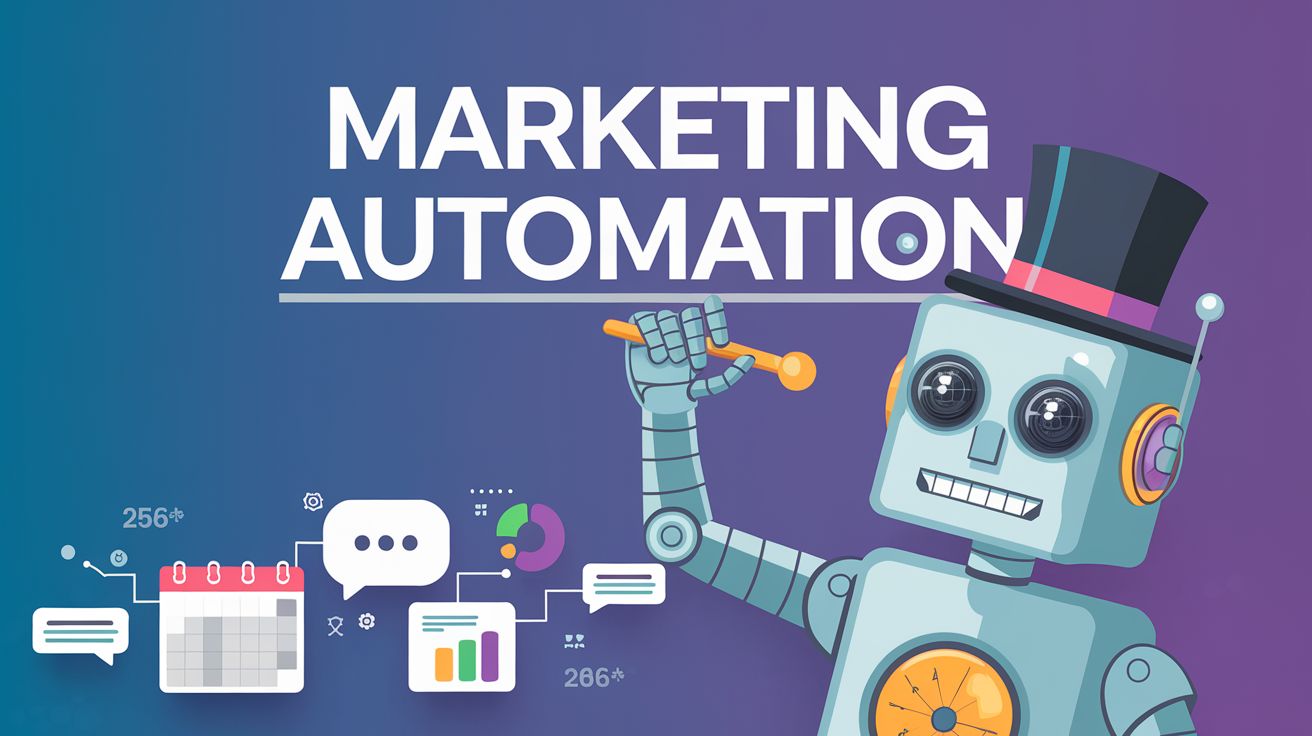Marketing Automation
The Future of Marketing: How Automation is Revolutionizing Business Growth
In today’s fast-paced digital landscape, marketing has evolved beyond traditional methods, ushering in a new era driven by technology and data. At the heart of this transformation lies marketing automation, a revolutionary tool that enables businesses to streamline processes, enhance customer experiences, and drive revenue with unparalleled efficiency.
What is Marketing Automation?
Marketing automation refers to the use of software and technology to automate repetitive marketing tasks such as email campaigns, social media posting, lead nurturing, and customer segmentation. By integrating artificial intelligence (AI) and machine learning, these systems can analyze user behavior, personalize content, and deliver targeted messaging at scale.
Why Marketing Automation Matters
As consumer expectations continue to rise, businesses must adopt more sophisticated strategies to engage audiences effectively. Marketing automation allows brands to:
- Increase Efficiency – By automating routine tasks, marketing teams can focus on high-level strategies, creativity, and customer relationship building.
- Enhance Personalization – Automated systems analyze user data to craft customized experiences, improving engagement and conversion rates.
- Optimize Lead Generation & Nurturing – Businesses can score leads based on their interactions, ensuring sales teams focus on the most promising prospects.
- Improve ROI – With data-driven insights, companies can measure the impact of campaigns and allocate resources more effectively.
- Strengthen Customer Relationships – Through personalized and timely communication, brands can foster long-term relationships with their audience.
- Reduce Human Error – Automation ensures consistency and accuracy in marketing efforts, minimizing the risk of mistakes that could affect customer engagement.
Key Features of Marketing Automation Tools
Modern marketing automation platforms offer a suite of powerful features, including:
- Email Marketing Automation – Personalized email sequences triggered by user actions, such as welcome emails, follow-ups, and re-engagement messages.
- Social Media Scheduling – Automated posting across multiple platforms, ensuring consistent brand presence.
- Lead Scoring & Segmentation – Identifying and categorizing leads based on behavior, demographics, and engagement levels.
- Customer Journey Mapping – Understanding and optimizing every stage of the buyer’s journey to enhance user experience.
- Analytics & Reporting – Data-driven insights to refine strategies, measure campaign success, and track key performance indicators (KPIs).
- Multi-Channel Marketing – Synchronizing marketing efforts across email, SMS, social media, and other digital channels to create a seamless customer experience.
- AI-Driven Chatbots – Providing instant customer support, answering queries, and guiding users through the sales funnel.
- Predictive Analytics – Using data patterns to anticipate customer behavior and optimize marketing efforts.
How Marketing Automation Transforms Customer Engagement
Automation enhances the customer experience by delivering timely, relevant, and personalized content. For example, e-commerce brands use automated email sequences to re-engage abandoned cart users, while B2B companies leverage lead nurturing workflows to educate prospects before the sales pitch.
By utilizing AI-driven chatbots and predictive analytics, businesses can anticipate customer needs, providing proactive support and recommendations that build stronger relationships. Automation ensures that every customer interaction is meaningful, increasing trust and brand loyalty.
Moreover, automation enables real-time customer feedback collection, allowing brands to improve their products and services based on consumer preferences. Businesses can also automate surveys, polls, and reviews, ensuring a continuous loop of engagement and enhancement.
Challenges in Marketing Automation
While automation offers numerous benefits, it also presents challenges, such as:
- Over-Automation – Excessive reliance on automation can make interactions feel impersonal and robotic, potentially alienating customers.
- Data Privacy Concerns – Businesses must adhere to regulations like GDPR and CCPA, ensuring customer data is handled ethically and securely.
- Integration Issues – Ensuring seamless connectivity between automation tools and existing CRM systems can be complex and require technical expertise.
- High Initial Investment – Implementing a robust marketing automation system requires financial and human resources, which may be challenging for small businesses.
- Content Quality Dependence – Automated campaigns rely heavily on high-quality content. Poorly crafted messages or irrelevant offers can diminish engagement.
- Learning Curve – Teams must be trained to use automation tools effectively to maximize their benefits.
The Future of Marketing Automation
As technology advances, marketing automation will continue to evolve. Emerging trends include:
- AI-Powered Hyper-Personalization – AI will refine personalization by analyzing real-time behavioral data, tailoring content, and predicting consumer preferences.
- Voice & Chatbot Integration – Conversational AI will play a bigger role in customer interactions, providing instant, human-like assistance.
- Predictive Analytics – Businesses will anticipate customer needs before they arise, optimizing product recommendations and promotional strategies.
- Augmented Reality (AR) & Virtual Reality (VR) Integration – Future marketing campaigns may incorporate immersive AR and VR experiences to engage users on a deeper level.
- Blockchain in Marketing Automation – Blockchain technology may enhance data security, improve transparency, and give consumers more control over their personal information.
- Increased Use of Behavioral Triggers – Automated systems will leverage deeper insights from user behavior to trigger highly contextual and relevant responses.
- Advanced Email Personalization – Emails will become even more tailored, with dynamic content adapting in real-time based on user interactions.
Best Practices for Implementing Marketing Automation
To successfully integrate marketing automation, businesses should:
- Define Clear Goals – Establish objectives such as lead generation, customer retention, or brand awareness to guide automation strategies.
- Understand the Audience – Use data analytics to segment audiences and create personalized campaigns.
- Maintain a Human Touch – Balance automation with personalized interactions to build meaningful relationships.
- Monitor and Optimize – Continuously analyze performance metrics and refine strategies for maximum effectiveness.
- Ensure Data Compliance – Adhere to data protection laws to maintain customer trust and avoid legal issues.
- Choose the Right Platform – Select a marketing automation tool that aligns with business needs and integrates seamlessly with existing systems.
Conclusion
Marketing automation is not just a trend—it’s a fundamental shift in how businesses attract, engage, and retain customers. By leveraging automation, companies can enhance efficiency, improve customer relationships, and drive sustainable growth in an increasingly competitive market.
As businesses navigate the digital age, those who embrace marketing automation will stay ahead of the curve, unlocking new opportunities and achieving long-term success. With continuous advancements in AI and data analytics, the future of marketing automation is bound to be more intuitive, intelligent, and impactful than ever before.


Post Comment